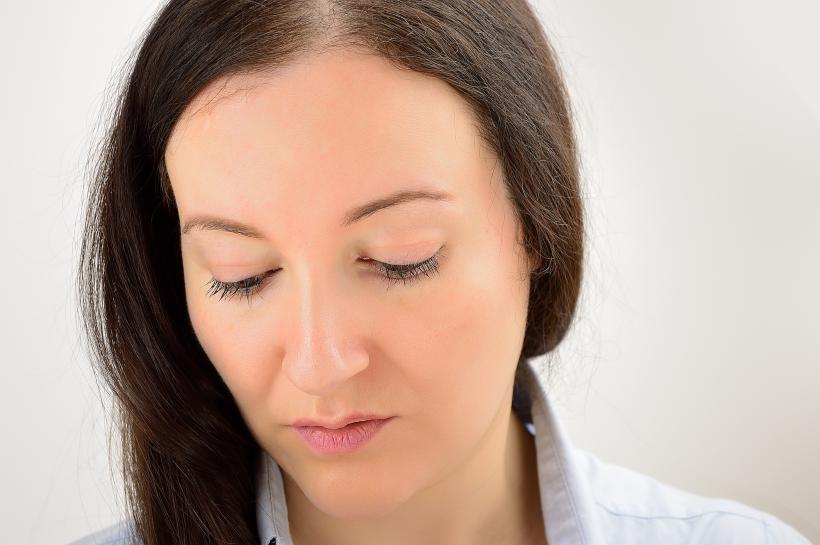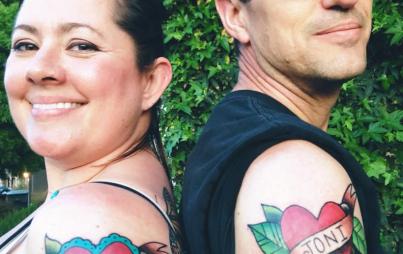
I never imagined myself being anyone’s wife so I grieved for my single life when I got married.
This article first appeared on SHE'SAID' and has been republished with permission.
When I got married, it felt like a dream — but not the fairytale dream little girls grow up imagining. More like a stomach-churning rollercoaster ride.
I never imagined myself being anyone’s wife.
The idea of being tied to any one person for more than a few months terrified me. Most days, I can barely buy a coffee without wondering whether I should’ve picked the much yummier (and much unhealthier) peppermint mocha frappuccino advertised on the specials board. A college lecturer once likened my inability to stick to something to Greek philosopher Plato’s examination of love.
When Plato asks his mentor Socrates, “What is love?” Socrates tells him to go forth into the wheat fields and, without turning back, walk until he finds the one leaf that looks perfect to him. Much like my many fruitless pre-marriage dates, Plato is unable to decide on a leaf he can stand to look at every day, and returns home empty-handed.
So when I unexpectedly found myself in love and uncharacteristically planning a wedding in my mid-twenties, I was hit with a rush of insecurity. I worried that the end of my days wandering the wheat field would mean the end of my fun and carefree lifestyle.
I had married friends. I saw the way people referred to them as a joint entity, and the way they slowly lost their identities to their union. They traded independence and spontaneity for joint bank accounts and mortgage payments, and stopped talking about their dreams. They fixated on one another, to the exclusion of all else, and eventually, when social events came along, they dropped off the invite list.
Most unnervingly, I cringed at the way male friends began to regard our married-off girlfriends. Women they’d once treated with chivalry and adulation turned into people they spoke to like a work colleague or sports-watching buddy. It was as if their feminine mystique — and all the opened doors and straightened shoulders it once inspired — had been hurled into the abyss along with their wedding bouquets.
It bothered me that I would soon be one of them, an “other half” instead of a whole, a wife before a woman.
Would I become yet another woman cut from the invite-list in favor of friends who weren’t yet lost in paint swatches and family planning?
So when I returned to my job after the wedding, I shoved my left hand in my pocket and didn’t announce the news. And when my co-workers asked me to join them for our usual after-work drinks, I flung my handbag over my arm and headed toward the bar down the street, neglecting to mention that someone was waiting for me at home.
I was no less in love with my husband, but I was terrified of the very real idea of being seen as a wife, with all the attendant baggage that word carried. I still felt like the single, carefree girl everyone flocked to at parties, and I feared that knowledge of my new relationship status would erase that forever.
It wasn’t that I was being regularly hit on. It was more the possibility that someone might look at me in a way that still made me feel special, vital – seen. It didn’t matter that I was already all those things to my husband. As far as I was concerned, he was contractually obligated to acknowledge me.
I began to secretly long for the life I’d left behind.
One filled with possibility and unpredictability, in which I could still catch a man’s eye, engage in playful flirtation, and not be entirely sure what the evening would bring, or how it would end.
Writer Isabelle Tessier speaks about this inner conflict in her essay, I Want To Be Single — But With You, describing her ideal relationship as one that allows her to maintain the freedom of single life.
“I want something that will be both simple and at the same time not so simple…To be in a relationship that is anything but clear. I want to be your good friend, the one with whom you love hanging out. I want you to keep your desire to flirt with other girls, but for you to come back to me to finish your evening…I want to live a single life with you. For our couple life, would be the equivalent of our single lives today, but together.”
You Might Also Like: How To Reignite The Spark In Your Marriage
It was a bold statement, and readers had plenty of harsh comments for Tessier when it was published on Huffington Post, calling her immature and commitment-phobic. But Tessier isn’t the first woman who ever wanted to have her relationship cake and eat the single frosting, too. A 2015 paper published in the Journal of Family Issues found that almost fifty percent of brides suffer from postnuptial blues, ranging from temporary melancholy to full-blown depression.
In her groundbreaking book, Emotionally Engaged: A Bride’s Guide To Surviving The “Happiest'”Time Of Your Life, author Allison Moir-Smith describes this phenomenon as a result of undergoing a critical life transition.
“There are many layers to leaving single life, I discovered. During my engagement, as I made Jason and our marriage-to-be number one in my life, I noticed how that impacted all my other relationships…While I was happy and hopeful about our future, the strongest emotions I had were nostalgia for my single days and anxiety (Who am I now?). My essential self — my personality, independent spirit, heart and soul — remained the same of course. But the part of me that was a single woman, was in flux.”
In our increasingly FOMO-driven society, it’s become acceptable to prolong adolescence well into adulthood, delaying marriage and childrearing until we’ve achieved everything we want to first. Our concept of marriage has evolved into the ultimate mark of a successful life, rather than something we do along the way. As a married person, am I still relevant?
But why is it we see marriage as the final scene of the film before the credits roll, a rulebook that has to get in the way of our individual pursuits, or worse still, our happiness, as this writer confessed? Why have we been conditioned to believe coupledom and singledom can’t coexist, as Tessier describes?
It was six months into my marriage before I confronted my husband with my fears and came to the realization we didn’t have to follow the script.
Though I’m not shy about admitting I’m a wife today, people still largely refer to my husband as my boyfriend, because of the way we conduct our relationship. We’re careful not to be people who only talk to — or about — one another. We don’t reliably turn down social invites apart in favor of nights in together. We’ve decided to be childfree and we live largely separate lives, but ultimately, we live them together.
We’re still making the rules up as we go, rather than playing out someone else’s idea of how our lives should look. In fact, six years in, we don’t even have a joint bank account or a mortgage. We rarely spend a night in, and up until a few months ago, we had a roommate, living as if we were still in college. (The living like college students part still holds embarrassingly true, however.)
There are times I miss my single life, but more often than not, I’m glad I took the plunge and got married. I finally understand why my college lecturer told me that story about Plato. Upon returning empty-handed after his quest to find the perfect leaf in the wheat fields, he explains to Socrates why he failed to pick one.
“Actually I have found one extraordinary leaf, but I don’t know whether there’s any other leaf more extraordinary, so I didn’t take that leaf. When I walked further, I realized that the leaves I found are not as extraordinary compared to the leaf I’ve found earlier in my walk. In the end, I didn’t take any single leaf.”
Thankfully, I didn’t let fear hold me back. I picked my leaf, and he takes pride of place in my life today.








